Student Blog
Getting Involved
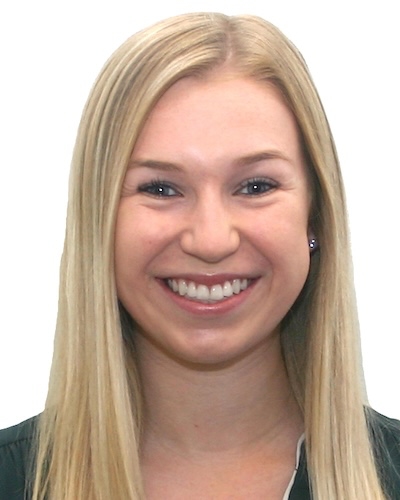
OT Career Fair: Résumé Advice and Preparation ⟩
April 3, 2019, by Jessica P.
Getting Involved Life Hacks
This past Friday, our division hosted our annual OT Career Fair. We had almost 40 organizations come to speak to and recruit our students for jobs in pediatrics, adult physical rehabilitation, mental health, school-based OT, and more! For me, it was a great opportunity to network and see what the job market is like as a new graduate. One of the most helpful parts of the day was getting feedback on my résumé. As an occupational therapy student, my résumé has evolved over the past few years to include to numerous fieldworks and experiences I have had during my time at USC.
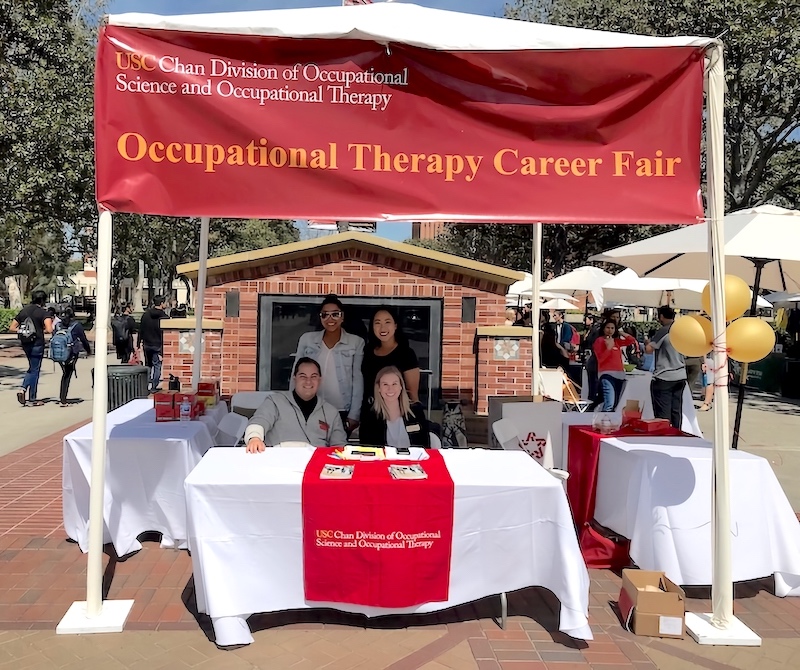
Chan’s Events Coordinator & Student Ambassadors at the 2019 Career Fair
Putting together an OT résumé for the first time from scratch can be a daunting task so here are my tips on creating your best OT résumé.
Key Elements of a Résumé
- Contact Info
- Education
- Honors/awards
- Experience
- Fieldwork
- Professional associations
- Additional information (skills, interests)
When writing a résumé, you can edit it to target the specific position you are applying to. Always include your skills and accomplishments rather than just listing your required work duties. Use action words to describe what you have accomplished.
Presentation of a Résumé
- 1-2 page length
- Single-spaced
- No smaller than 10-point font
- Print on thicker paper
Hopefully if you have a stellar résumé, you are able to secure an interview. One of the most important parts of an interview is preparation.
Interview Preparation
- Research the company: Know the company’s mission and why you want to work there.
- Check social media: Learn what the company is really about.
- Prepare questions for the interviewer: What do you like about working here? How did you get into this line of work? If you weren’t working here where would you be working?
- Practice interviewing skills: Work with someone who can give you feedback. USC offers mock interviews on connectSC which can help you gain confidence in your answers.
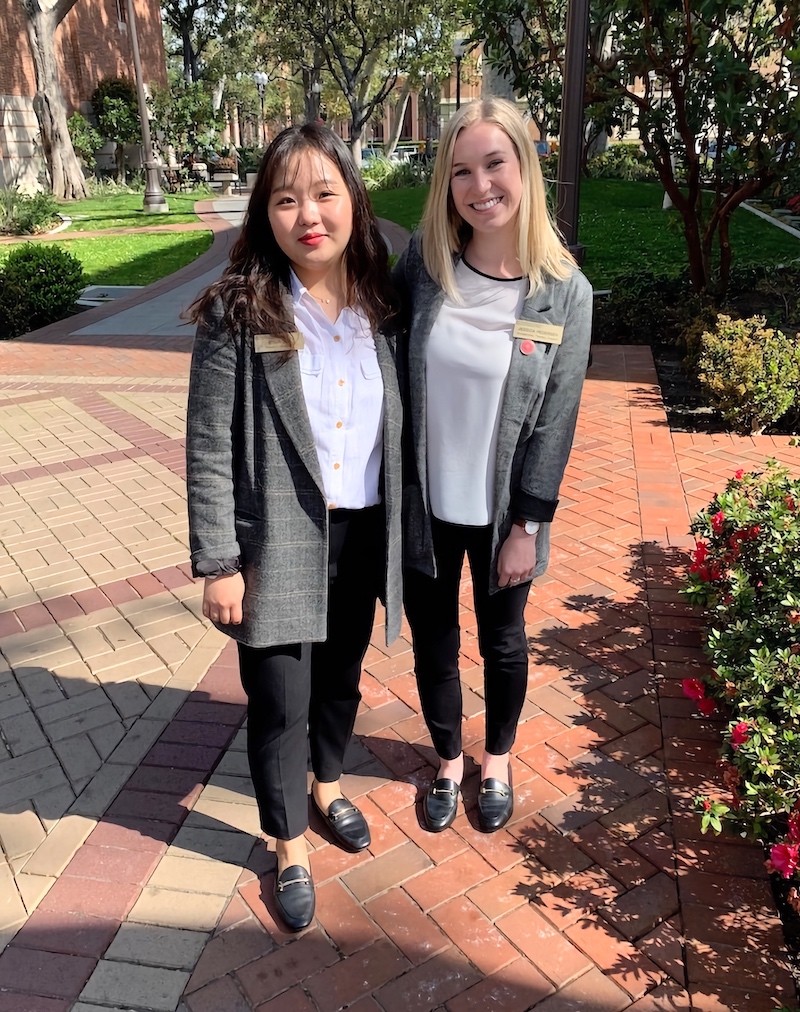
For any interview, remember to always dress your best!
Whether you are a prospective student looking at occupational therapy programs or about to graduate and look for your first job, know that our career outlook is great. According to the Bureau of Labor Statistics, there is a projected 24% growth of OT jobs from 2016-2016. This means that we need more OTs to fill jobs and I know that my classmates and I have been well prepared to be the occupational therapists of the future.
⋯
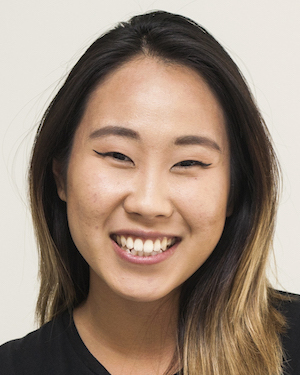
#socialmedia ⟩
February 12, 2019, by Joyce
Getting Involved
Have you ever wondered who manages the Chan Instagram and Facebook profiles? How about our Twitter and YouTube handles?
Did you even KNOW we have those platforms? Many people get access to our channels, accounts, and platforms. But it’s been a great joy and opportunity to take the lead on a majority of the content that gets posted on our social media.
So . . . what is it that I really do? Do I just go around taking pictures of people and posting online? To a certain degree YES that is exactly what I do! One of my duties as a student ambassador is to post various events that happen in school. This can range from special speakers to student-led philanthropy events. What I really enjoy about this part of the job is the fact that I can use my love for social media for school and get paid for it!
Snap, Edit, Post!
A majority of the social media is done on the go. When there is an event that’s going on at school, I’ll try to sneak into it for a split second to snap some pictures. If I can’t be at the event physically, I’ll reach out to a classmate who is at the event to take some pictures for me. Then it’s about using editing apps like Snapseed or VCSO to create a cohesive theme like this:
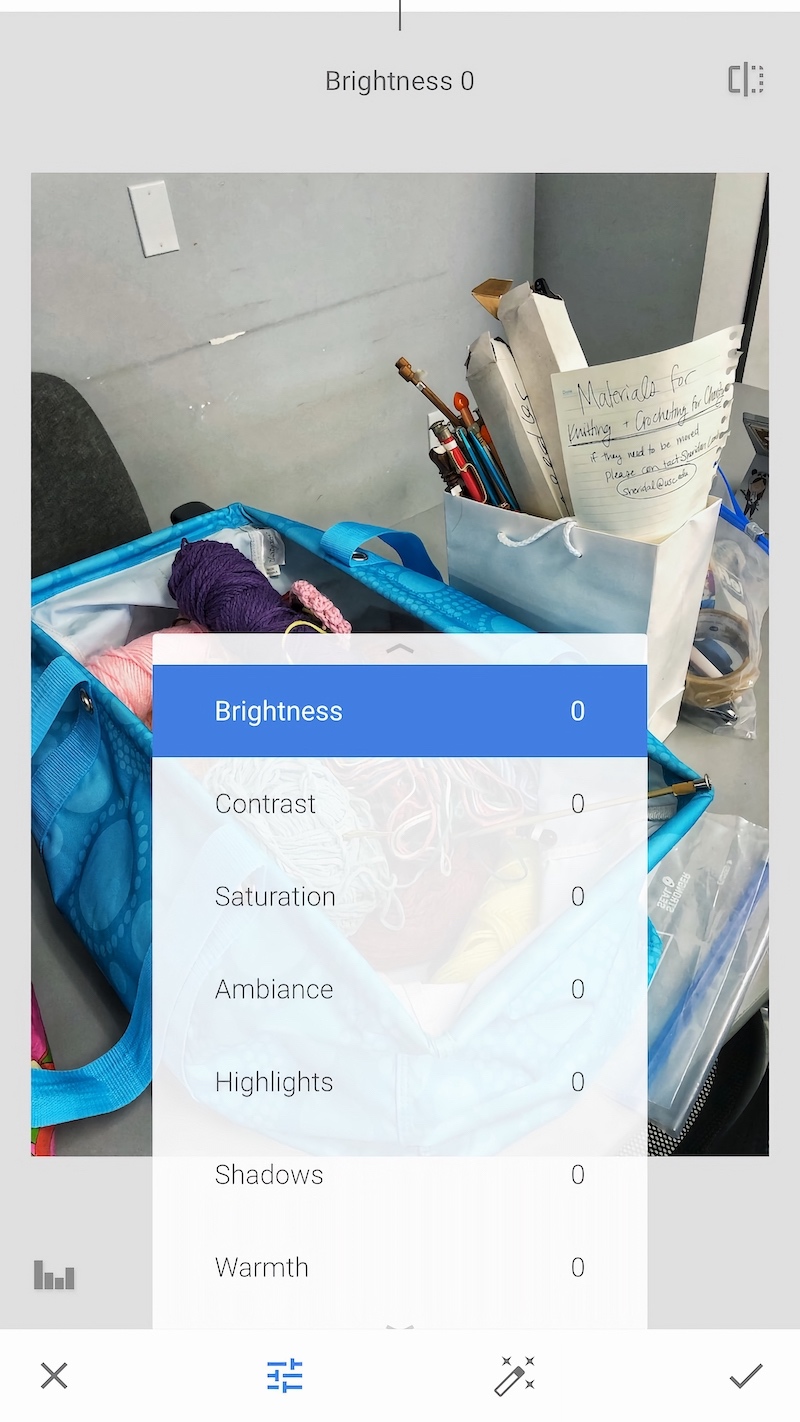
Then straight to posting we go! Sometimes, I enjoy using InstaStory to feature multiple photos rather than posting all of them in one post. I’ll also have other ambassadors or my boss texting me throughout the week asking me if I can post something to our social media handles. I love being on the go because social media is something that I enjoy partaking in.
My camera roll will end up looking like this:
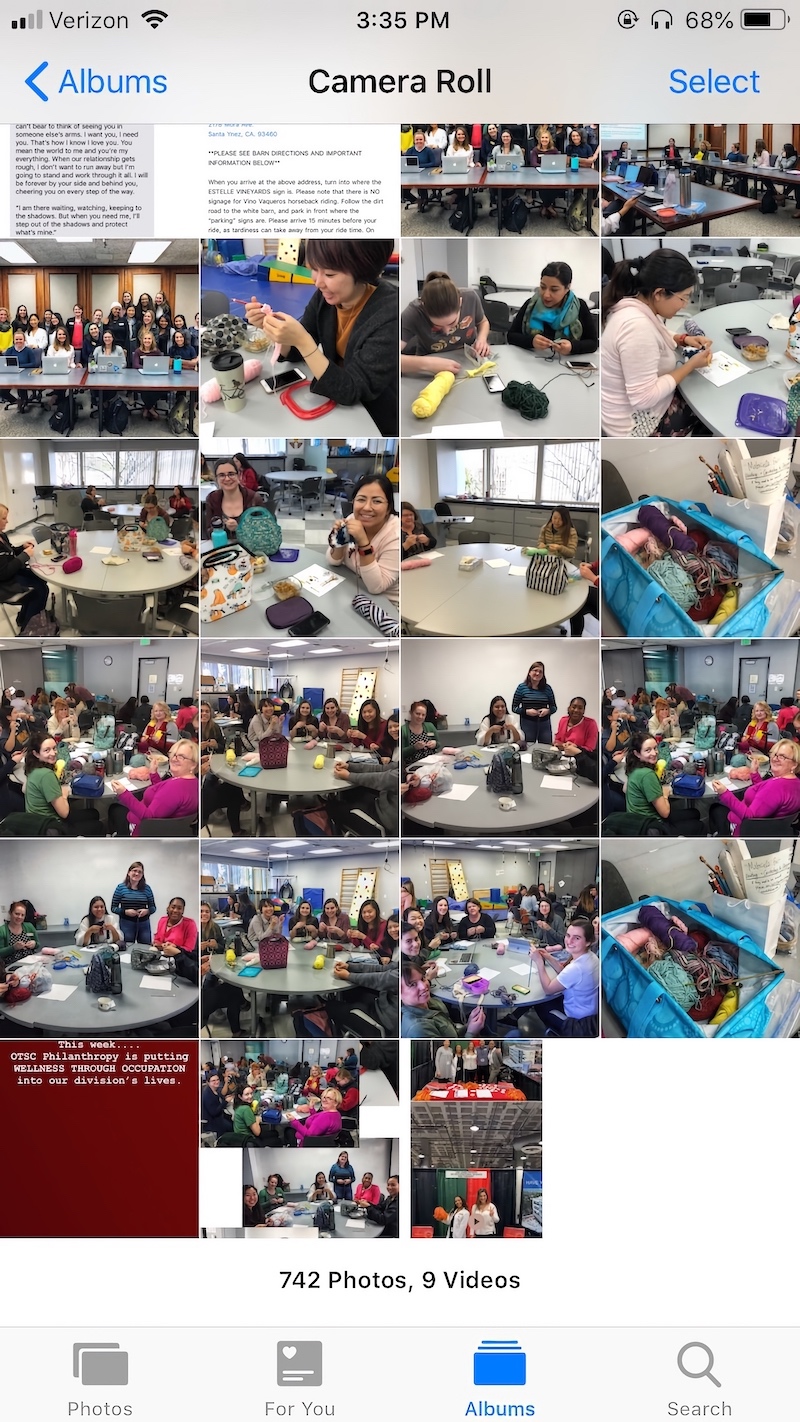
And I’ll receive messages like this LOL:
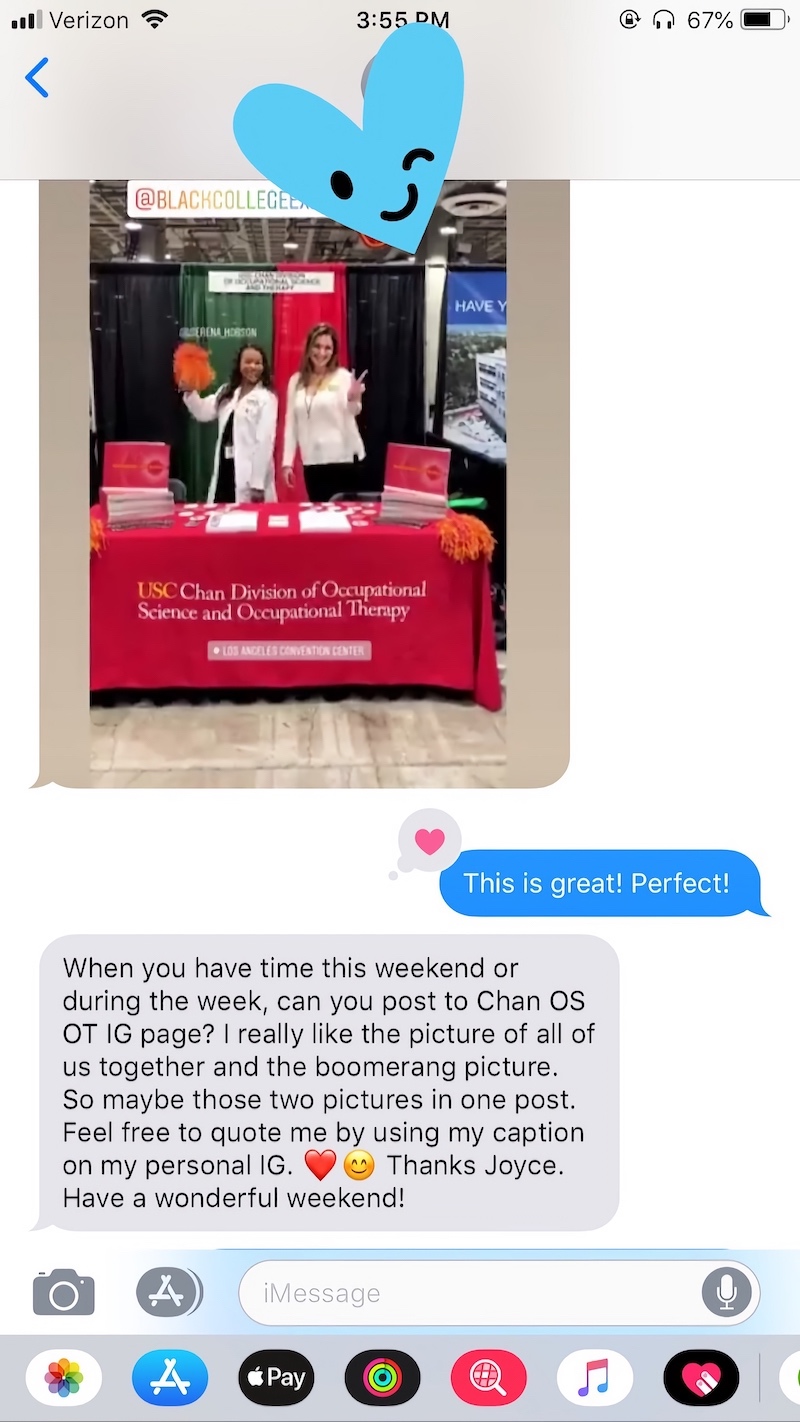
#TrojanTuesdays
For students who submitted their information and pictures to an email address and found themselves on the Chan website . . . well that’s me! I love participating in this project because I get to read a myriad of students’ journey to occupational therapy as well as fun and quirky facts about them. Our program is filled with over 100 students alone in the entry level master’s program! It’s hard to meet everyone but in this way I get to see a little snippet of the people I study with!
It’s all about the Insights
A hidden part of my social media role is pulling data from all the posts that we publish on both Instagram and Facebook. This is done mainly behind the scenes through each handle’s specific analytic software. By pulling the information, I have a clear idea of the kinds of posts that receive the most attention / likes / comments / shares. Then I can focus my energy in creating similar kinds of content!
I never thought that I could get paid to do social media stuff in OT school! It truly has been a fun journey!! Through my interaction with the official Instagram and Facebook handles, I have also been able to speak with people all over the world who are interested in our program!
⋯

Some People are Worth Melting For ⟩
January 15, 2019, by Joyce
Getting Involved What are OS/OT?
This winter break I decided to do something a little bit different. Instead of flying back home to NYC, I decided to spend it in LA with the friends I made here. The entire city felt a little bit different. I wasn’t rushing to class or to the clinic. I had more time to actually clean my room and my loads of laundry. I could stay up watching midnight movies because there was nothing to wake up to the next morning. No studying . . . nothing.
I’m not exactly sure what my plans after graduation will be so I wanted to take advantage of this city while I still had the chance. Looking back, I was shocked to see how my life in LA filled up with a strong supportive network of beautiful souls.
Here are some highlights.
Admission Holiday Lunch
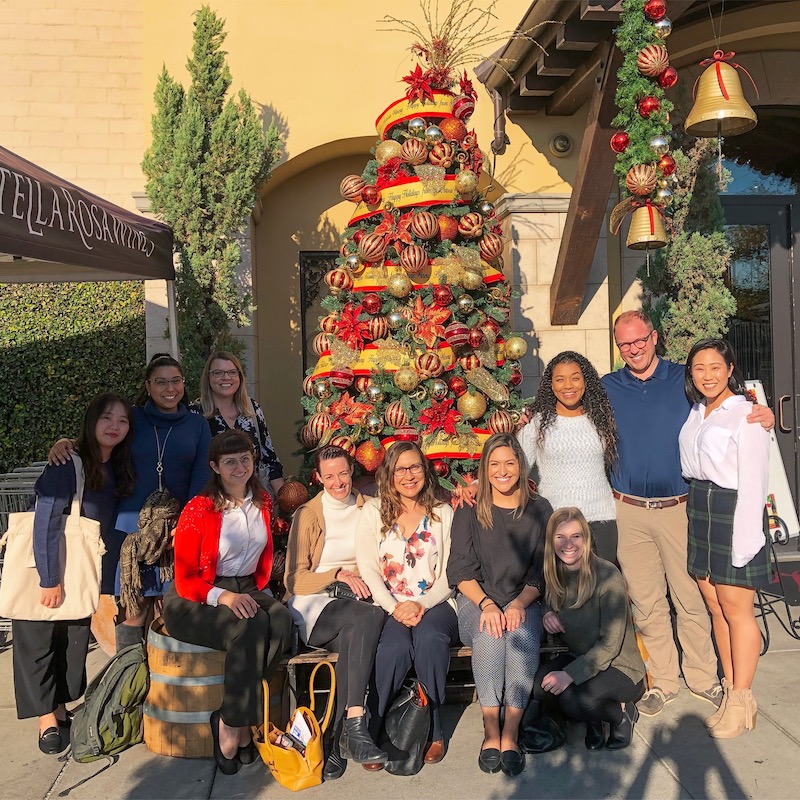
As many of you might understand, it’s almost impossible to get everyone together in one place for one meal. So it was heartwarming to get together with the admissions team for a sit down meal outside of school. We went to San Antonio Winery for lunch and it was a great start to the holiday festivities as we engaged in conversations that were non-work related, ate great food, and just got to know each other a little bit more.
Cabin Fever
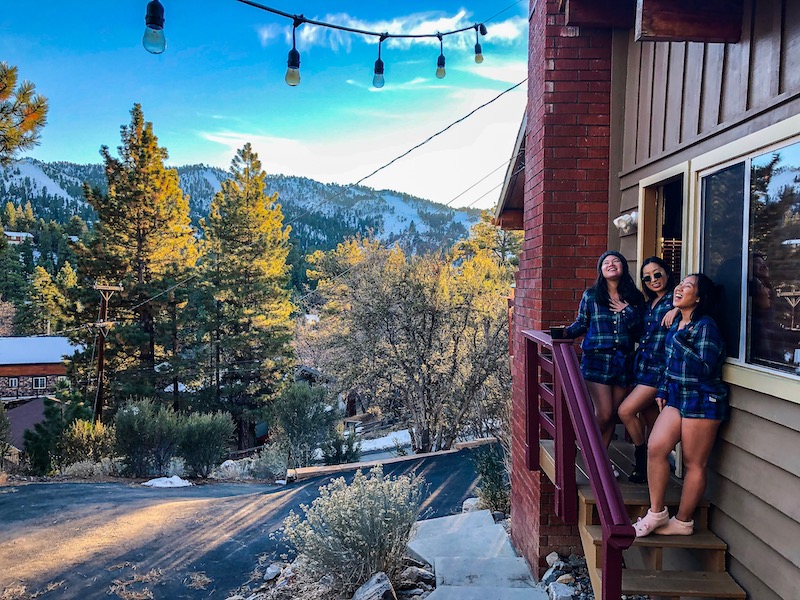
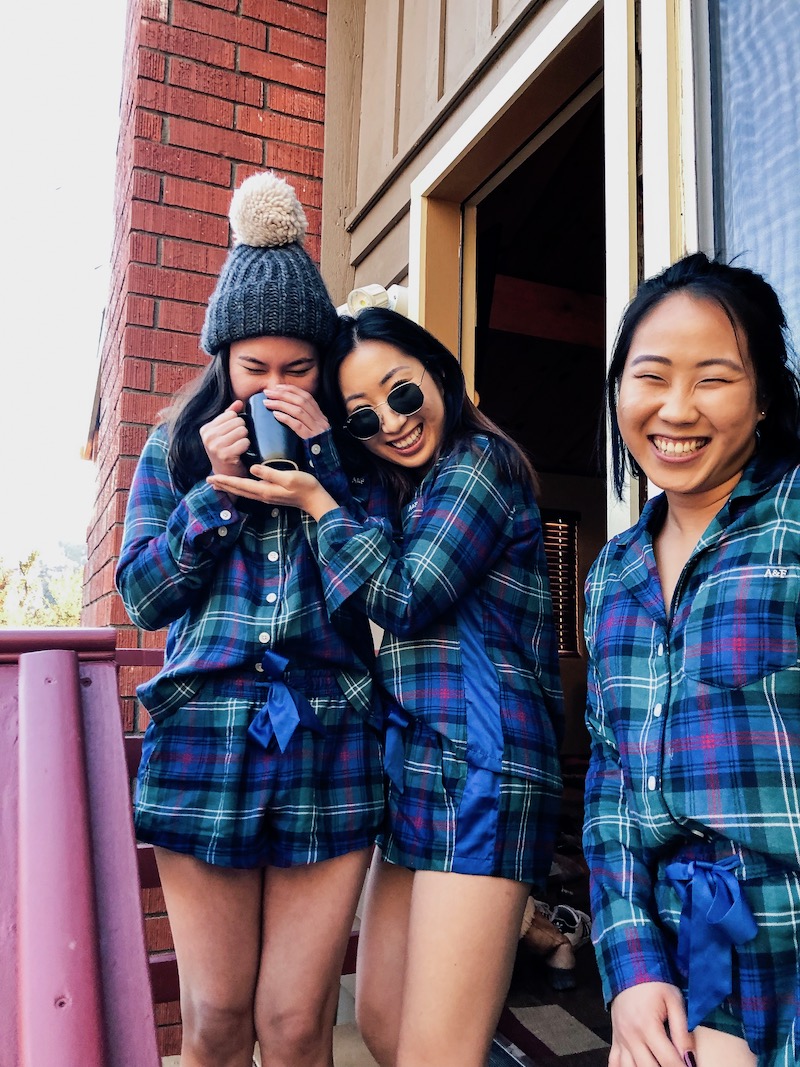
With my closest OT sisters, I went on a cabin trip to Big Bear Lake. This was my first time there! We rented out an Airbnb and did absolutely nothing but chilled. We watched Lord of the Rings and Moana. We cooked KBBQ, tacos, and yes . . . a kale salad. We baked cookies at 10pm because we wanted to. The snow was melting during our stay, but it was nice to get away from the city for a week to breathe in fresh air and enjoy the stars at night!
Mario-Kart IRL
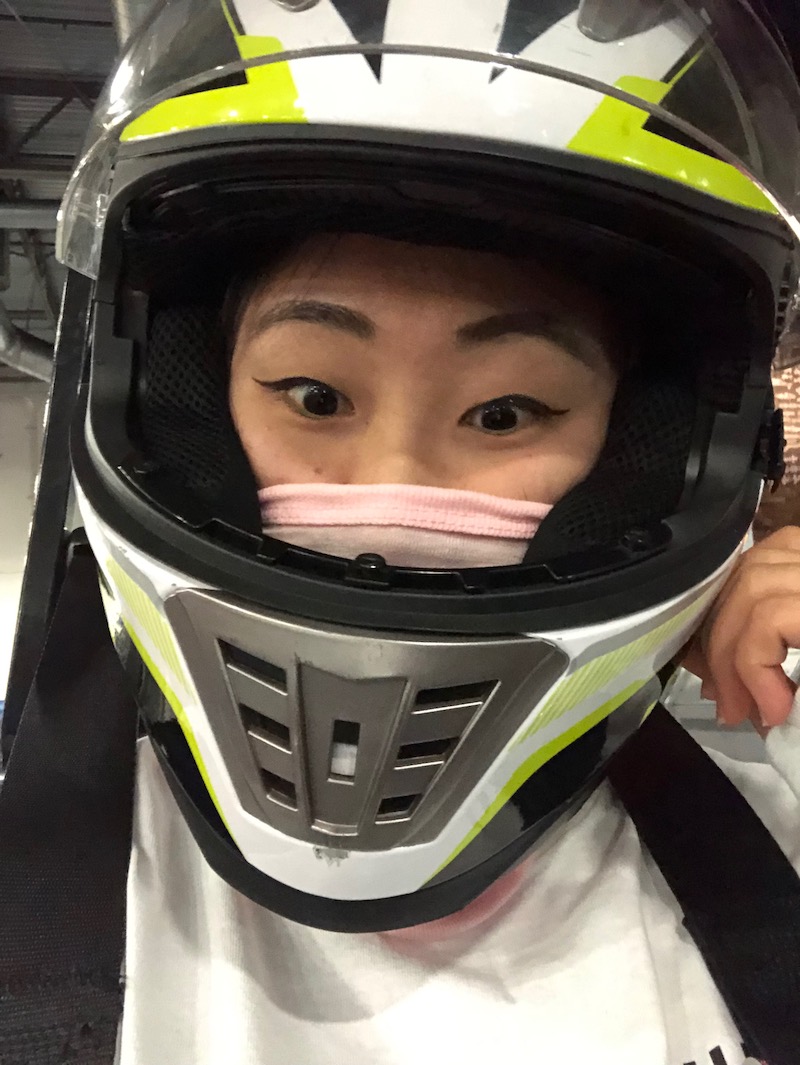
No I did not win . . . I went go-karting this winter break and I realized that it was not as easy as they make it look like in the games. I raced twice. The first time, I wasn’t sure what to exactly to expect so I was very anxious. The go-karts themselves go up to 40MPH and I do not bode well with speed. I was that person . . . blocking everyone else . . . holding people up . . . oh and did I mention I rammed right into the wall? The second time around, I realized that I wanted to just enjoy the ride and thought of it as a leisure ride. I let the fast speeders go past me. I don’t mind being last place!
Winter break was a nice time to enjoy and explore the city of Los Angeles without the schedule and structure of school/work. However, I’m really excited for the new things that are happening this spring semester, like externships, electives, graduating . . . but that’s for a later post!
⋯
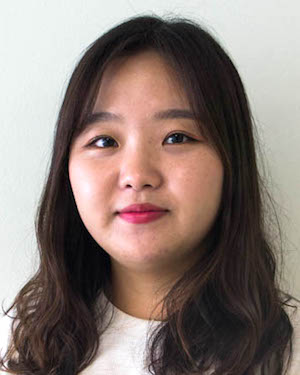
Presentation in South Korea ⟩
January 14, 2019, by Goeun
Getting Involved International
The new year has begun so as the new semester! Winter break has gone fast. During the winter break, I was back in my home country, Korea. I had a wonderful time back in there and I’d like to share some of my memories.
I was in Korea for three weeks and I visited a lot of places. I’m originally from Gwangju which is in the southern part of Korea. However, I went to a university in Daejeon, the middle part, so I went there to visit a professor and give a presentation about the Post-Professional Master’s Program for students at the university. Also, I worked in Jeonju before I came here, so I went there to visit the hospital where I worked and see my previous co-workers. I also went to Seoul and Daegu to visit my friends and went to Jeju Island with my family.
I went so many places and I’d love to introduce every places, but this time, I’ll tell you more about the presentation that I did. I planned for this while I was in here during the Fall semester. I was contacting with the professor from the university that I went, and got a chance to present about the Post-Professional Master’s Program in the USC Chan Division of Occupational Therapy and Occupational Science, which I’m currently studying as well as Pre-Master’s Program from the USC International Academy which I did before the Post-Professional Master’s Program and SOTI Program from the Global Initiatives. It was a great opportunity for me to present about the program in my country as a student ambassador in the USC Chan Division and a senior from the university in Korea.
In the presentation, there were about 50 students mostly freshmen and sophomore who are interested in studying abroad. Like I mentioned earlier, I presented about the Post-Professional Master’s Program, Premaster’s Program, and SOTI Program. Also, I told them my experiences what I prepared to study in here from learning English to applying and adjusting to a new country.
It was so great to meet the students, introduce the programs, and tell my story. Lastly, since I’m the first student from my university who study abroad, I hope more students would come later as Post-Professional Master’s students or a SOTI program participants.
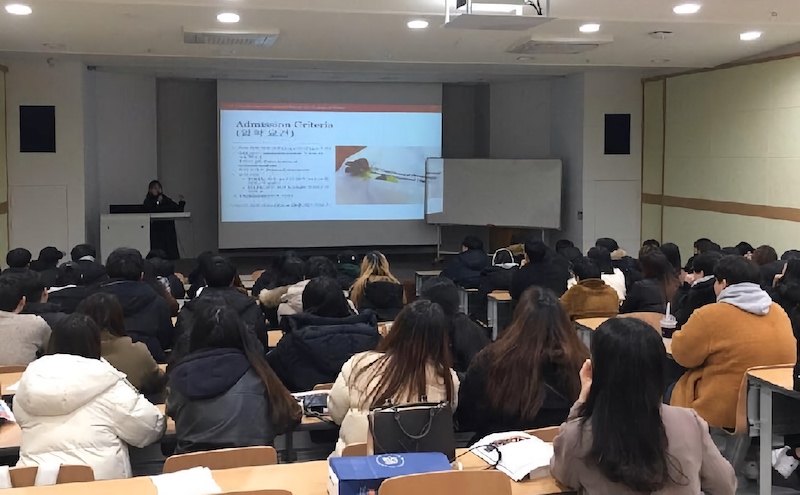
A picture of presentation about the Post-Professional Master’s Program
⋯
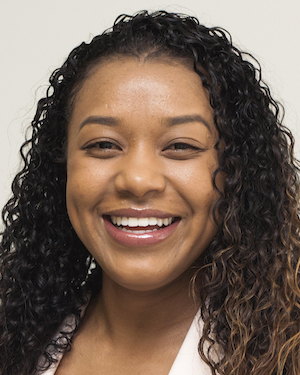
American College of Lifestyle Medicine Conference ⟩
January 11, 2019, by Serena
Getting Involved What are OS/OT?
Last semester seemed like a whirlwind. My academic workload consisted of 4 courses: Health Promotion and Wellness, Adulthood and Aging, Occupation-Centered Programs for the Community, and the Mental Health immersion. Apart from classwork, I also completed my Level I Fieldwork at USC’s Kortschak Center for Learning and Creativity, tabled and advocated for OT at various events such as the Latino Expo Event, and held the role as a Care Team Coordinator for the Student Run Clinic. One of my biggest accomplishments was attending two conferences. I previously mentioned the OTAC conference in Pasadena, California, and I would love to tell you more about the second conference I attended: the American College of Lifestyle Medicine (ACLM) conference in Indiana.
What is the American College of Lifestyle Medicine (ACLM)?
The American College of Lifestyle Medicine (ACLM) is a a healthcare association dedicated to preventing, managing, and reversing chronic diseases with lifestyle interventions. The ACLM healthcare professionals strive to place a greater emphasis on helping clients sustain healthier lifestyles such as engaging in health promoting diets, regular physical activity, adequate sleep, stress management, and avoidance of substance and drug misuse.
My top 5 reasons for attending the ACLM conference.
1. Further my education in lifestyle medicine: Attend seminars and lectures led by renowned healthcare professionals in the field of Lifestyle Medicine (LM) like Dr. Caldwell Esselstyn, Dr. Colin Campbell, Dr. Dean Ornish, and Dr. Wayne Dysinger (whose wife happens to be an OT 😊).
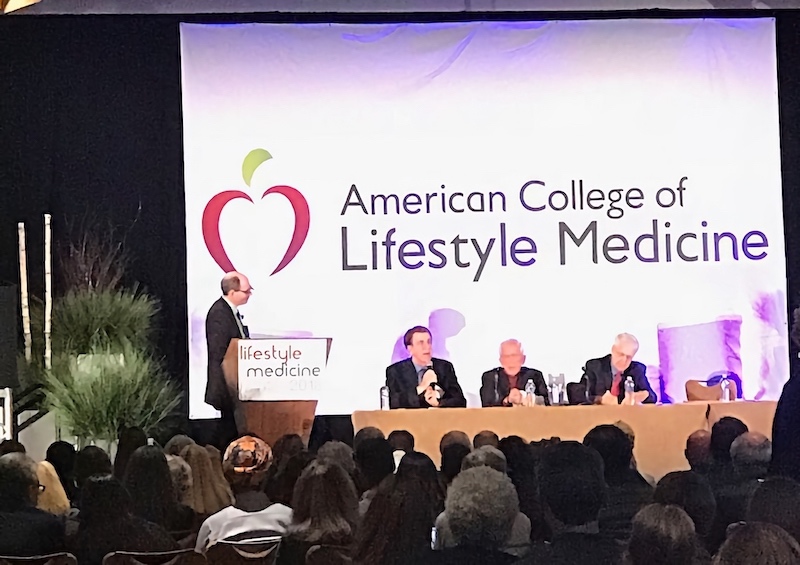
Panel of guest speakers at the 2018 American College of Lifestyle Medicine Conference in Indiana. From left to right: Dr. Michael Gregor, Dr. Dean Ornish, Dr. Colin Campbell, and Dr. Caldwell Esselstyn.
2. Learn about and advocate for OTs role in LM: At the conference I was the only individual in the field of OT. It is an amazing feeling to be able to advocate for our profession in the growing field of LM since we are trained to address lifestyle changes with a focus on habits and routines.
3. Focus on my passion: I love being able to combine my interests with my profession.
4. Meet and connect with other healthcare professionals with the same interests: One of the highlights of the event was being surrounded by people who not only wanted to help others live a healthier and happier life but they too were practicing a healthy lifestyle. For example, all of the food at the conference was whole food plant-based and a 5k walk during the conference was built within the schedule. Talk about work life balance!
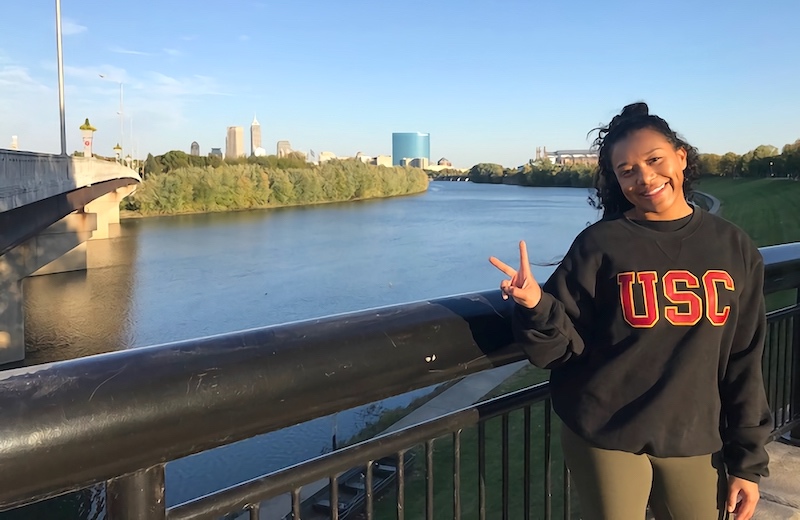
During the conference, a 5k walk event occurred around the mesmerizing Indianapolis Canal.
5. Gain skills to then go back home and make a change to my life and to the lives of others: I am grateful to have a roommate who is a medical student, Kacie Amacher, and also attended the conference. We are both passionate about helping others live a healthier life. Most importantly we realize the importance of the change first having to start with our own habits and routines.
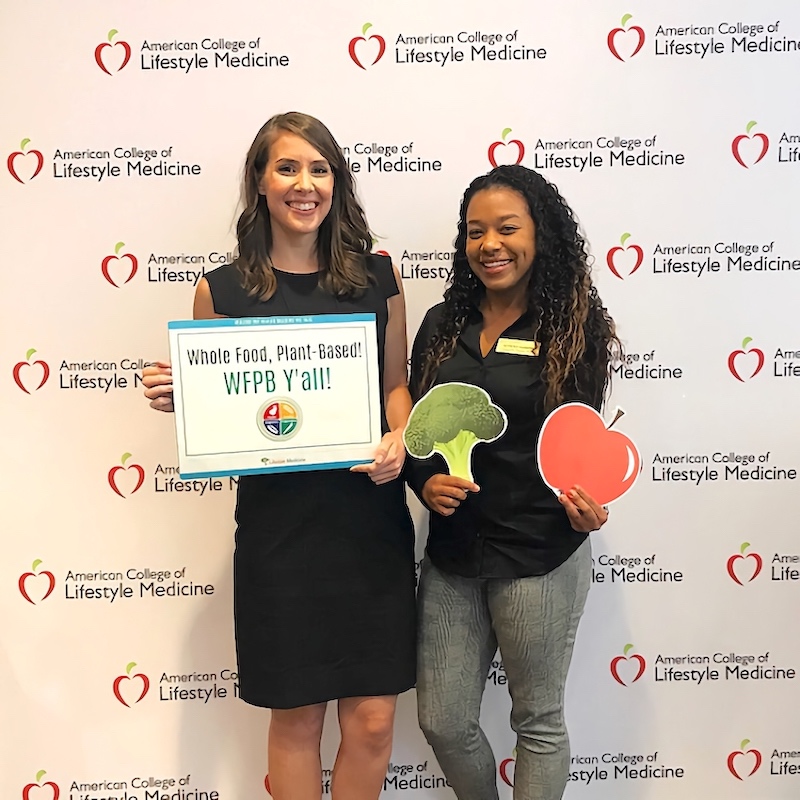
Me and my roommate, Kacie Amacher, at the 2018 American College of Lifestyle Medicine Conference.
Words of Advice
During your own OT journey, whether it be before, during, or after your academic career, I would highly suggest attending a conference related to your interests. Especially an interest where you feel OT may belong but lacks a wide presence. If you have any questions at all about ACLM and OTs involvement please feel free to contact me!
⋯





